[…] like many African countries, contends with a legacy from colonialism. As it relates to its resources of copper, cobalt, gold, silver, and gemstones, Patricia saw that, […]

I owe a great deal to the Romance Languages & Literatures Department of Harvard College. From always providing a safe space for me to rest my head in between a self-inflicted, impossibly busy schedule to their open-door policy that lead to many life-changing conversations to the first course I took in the Department, Advanced French I: The Contemporary Francophone World Through Cinema, that made me the cinephile I am today.
Film has a way of showing to us the possibilities and realities that exist in this world. I recognize that I sound hyperbolic as many other art forms can accomplish just the same. However, it is my belief that it takes a very talented filmmaker to bring an audience to an understanding, with beauty and ease, of some of the most ponderous subjects known to man.
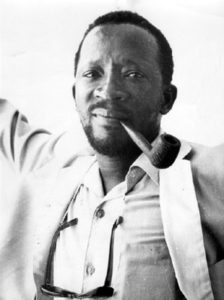
Such a man was none than the one they call The Father of African Film, Ousmane Sembène. Monsieur Sembène was a Senegalese author and filmmaker whose 1966 film, La noire de…(a.k.a. Black Girl), holds the title of the first feature film to ever be released by a sub-Saharan African film director. Considering the importance of media, not only as means of entertainment but also as a medium of representation, Sembene’s history-making film is a big deal. What makes it an even bigger deal, at least in my opinion, is that La noire de… is a film that was created to make us think.
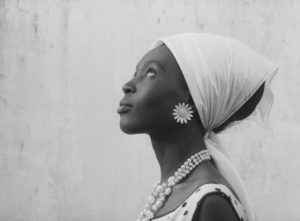
Sembène didn’t create this film to simply tell the story of a beautiful Senegalese girl, Diouana, as she finds herself the-nanny-turned-indentured-servant to a French family on the famed Côte d’Azur. No, this film, again in my opinion, was created to make us think: what is the significance of Diouana’s desire to go to France? How is Diouana’s relationship with her French employers a cinematic parallel to that of modern Franco-African relations in our post-colonial world?
If one were to flip through Sembène’s film catalogue, from Ceddo (1977) to Camp de Thiaroye (1988) to Xala (1975), one could see that Sembène, as both director and writer, was a man principally concerned with profundity. He wrote novels and scripts and directed films not because he wanted to say something, but because he had something to say. (Which is the best way to go about everything in life, honestly) In my opinion, his films are a looking glass, primarily constructed for Africans. Not necessarily for the purpose of representation, although that is important in this context, but so that we may see what lies beyond; beyond the Arab and Trans-Atlantic Slave Trades, Colonialism, and Neo-Colonialism. With his films, Sembène mastered cinematography and ensured that his mise-en-scènes elicit inquisitive questions from his audience, both African and non-African. In doing so, Sembène rightfully established himself as The Father of African Film.
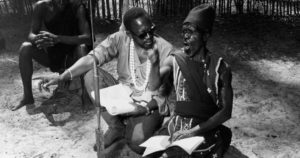
Outside of Sembène, there exists a handful of African filmmakers who, in creating films of similar shades and tones, have cultivated a distinct aesthetic for African film: From Mali’s Souleymane Cissé to Mauritania’s Abderrahmane Sissako and Med Hondo to Senegal’s Djibril Diop Mambéty. Although I have a deep love for the aesthetics of African film, the purpose of this short essay is not to list off the African filmmakers I admire; no, the purpose of my writing is to affirm The Necessity of African Film.
What does this mean? To me, as someone raised on Disney’s High School Musical yet whose fondest childhood memory was watching Akissi Delta’s Ma Famille with my mother, The Necessity of African Film, is predicated on how Africans view it. By this, I mean, what is the point of African film if Africans cannot relate to it? If the purpose of the arts is not to arouse the hearts and minds of its intended audiences, then what purpose do the arts serve?
“If the purpose of the arts is not to arouse the hearts and minds of its intended audiences, then what purpose do the arts serve?”
Audrey Dilgarde, Ousmane Sembène and The Necessity of African Film
If you ask me, African film should provide to an African audience the same feeling the Romans in Shakespeare’s Julius Caesar surely experienced when Mark Antony stepped onto that podium and boldly announced to the public, “Friends, Romans, countrymen, lend me your ears!” By this, I mean African film should provide, for an African audience, a sort of recognition not easily found anywhere else.
Take for example, this interview with Moussa Touré, who directed La Pirogue (2012), a film about a group of African men (and an African woman) attempting to reach Spain from Senegal, via the Atlantic, in the hopes of a chance at better economic prospects. During the interview, Touré touched upon the importance of African governments involving themselves in the film industry of their respective countries; not just on account of funding their fledging film industries but to also finance movies that could potentially serve as cinematic Public Service Announcements. In the case of La Pirogue, the PSA is that the passage—the one many take from Africa to Europe through the Mediterranean—is not worth the high possibility of death.
Now, the question I have is, if Touré hadn’t created this film, who would have? And, who would have done so in the same empathic and considerate manner? These questions speak to The Necessity of African Film.
Earlier, I wrote that The Necessity of African Film is predicated on how Africans view it. Please do not take my statement to be exclusionary. In fact, I believe that African film should be consumed by everyone as it’ll lead to an understanding of new cultures, new geographies, and new perspectives.
When I decided to launch The Catalyst, I did so from the school of thought that believes “conversations create connections”; this is the core ethic of my platform. From my perspective, I cannot think of a better way to create connections, and ultimately build community, then by extending each other the grace of empathy. I do not believe we can achieve synergistic unity as a society if we do not allow for an open (and respectful!) exchange of dialogue where we seek to understand each other, principally.
As quixotic as it sounds, I believe we must work to create a societal space where we call each in, rather than call each other out.
As a human being, I wholly believe in the importance of community and as an African, I proudly affirm The Necessity of African Film. Should this essay inspire you to begin on your own journey through the wonderful world of African film, may I suggest to you to begin with an undeniable classic: Ousmane Sembène’s La noire de…? After all, he is The Father of African Film.
Thank you so much, Changemaker, for reading till the very end. Until next time,


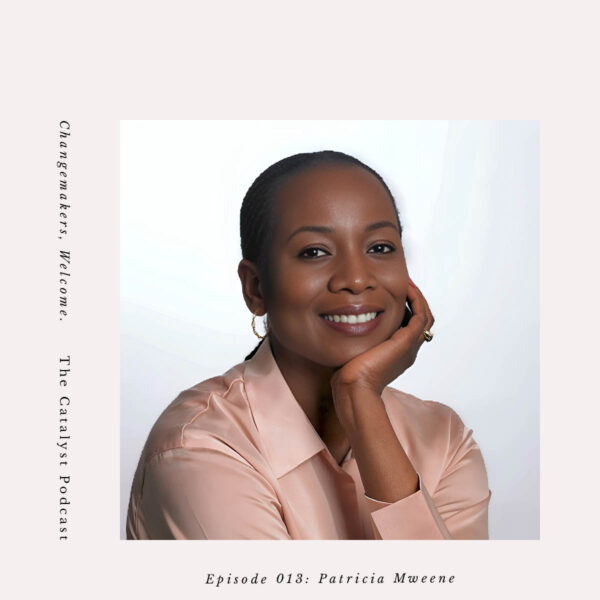
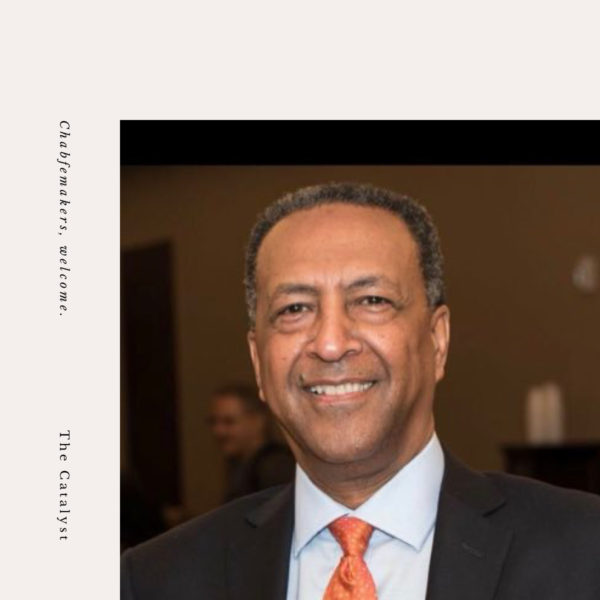
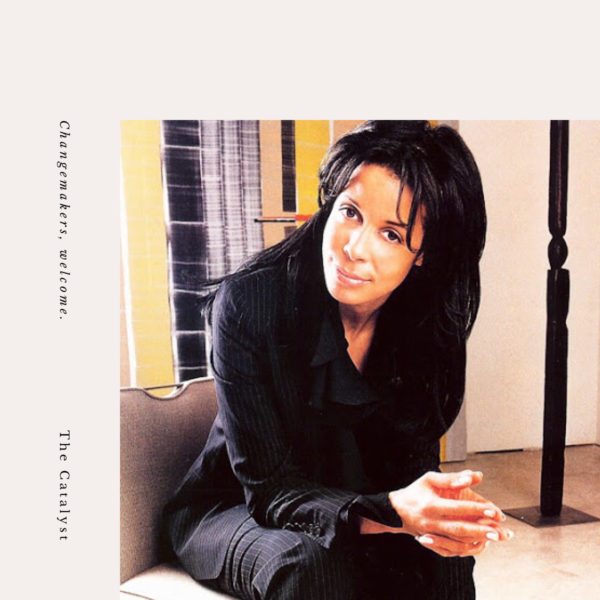

Very Well written.
Way to go.
Bravoooo
Thank you so much Florent! Stay tuned for more essays coming soon
Wow this is amazing! Very well written!
Good job Audrey!
Thank you so much Grace!
Well Written Audrey. I am running out of words to describe your work in this essay. Continue to nurture your gift and inspire us. Love you loads ❤️
Thank you so much mom ❤️
Wonderfully written Audrey, and quite insightful! Much similarly, I would consider myself an individual who appreciates film’s ability to meet an audience where they are, and take them on a journey that opens their view to complex and often analogous realities. But I must say, that my experience has been limited to the background from which I come from and am exposed. This piece has opened up my view of the power of film, extending far beyond my culture, community, or country and, to be frank, was so enjoyable to read.
Thank you so much for your kind words, Ashton. They mean so much coming from you! I’m happy you enjoyed my short essay, stay tuned for more to come!!
So informative, love your writing. Can’t wait to read more.
Thank you for your kind words Fernando! Yes, more essays are coming soon!
Such a great essay! Loved reading your perspective. Looking forward to reading more!
“I believe we must work to create a societal space where we call each in, rather than call each other out.” I love this… thank you for your words and inspiration
Thank you for your kind words, Valetina babe.